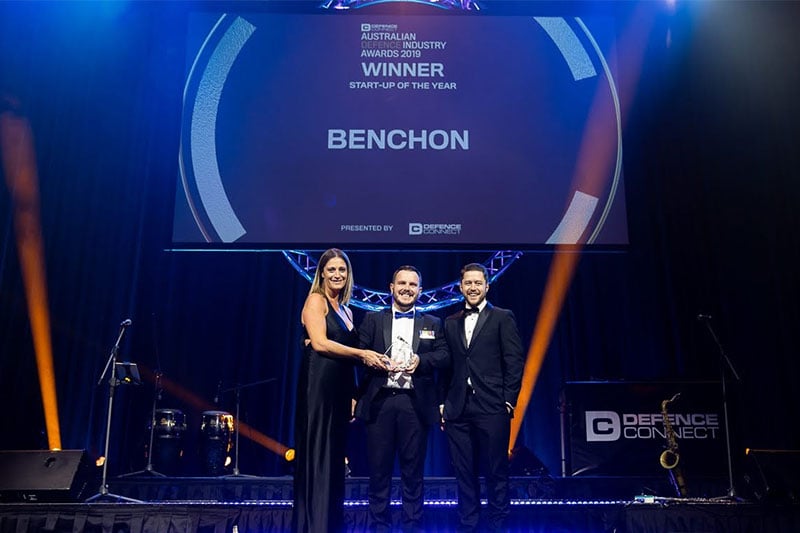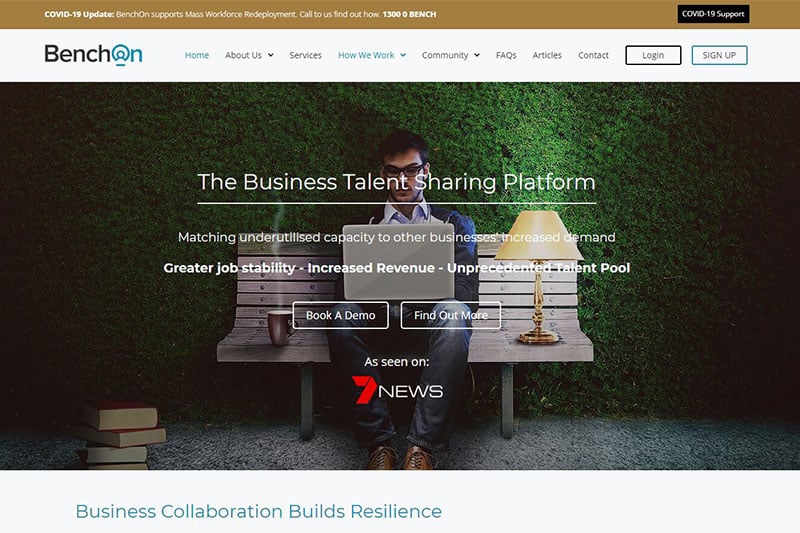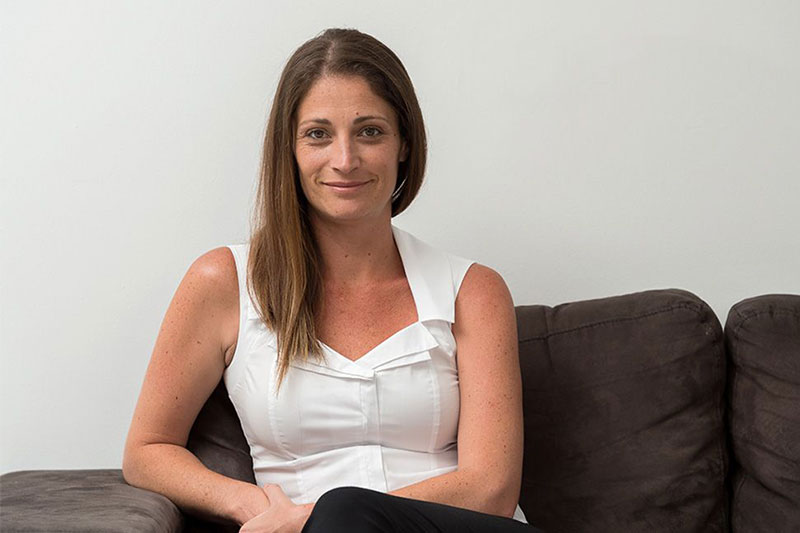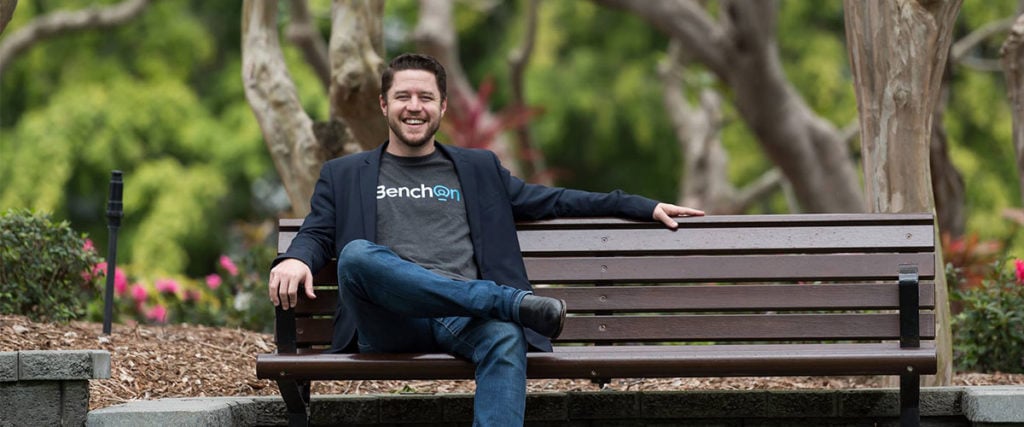Amid the flurry of layoffs, talent sharing startup BenchOn is empowering businesses to tap into underutilised talent via subcontracts.
Every year, the underutilisation of employees costs the Australian economy billions in lost productivity. This is compounded by a pervasive urge to cut staff in order to keep businesses afloat during periods of economic downturn. Heeding the call, Gold Coast startup BenchOn is the world’s first B2B talent mobility platform that allows businesses to diversify their revenue streams by ‘loaning out’ their idle staff to other companies in need of surge support. By harnessing Australia’s ‘largest untapped talent pool’, businesses are far better equipped to manage the peaks and troughs that so often lead to instability, unemployment and closure. With remote teams across Sydney, Canberra and Brisbane – and up to 50 companies flocking to their platform daily, BenchOn is positively thriving during this unprecedented and volatile time. We caught up with co-founders and life partners, Tim and Katie Walmsley, to discuss why they believe talent-sharing is the biggest enabler of stability for enterprises and startups alike, and how ‘resilience’ is being redefined in the COVID-19 era.
Tell us a little bit about your background.
Tim: So I’m a retired Army major. I did 13 years in the regular army and then 2 years as a reservist doing tours of Iraq and Afghanistan. When I got back from Afghanistan, I was diagnosed with a degenerative back disorder, so my Army career at that point was limited. I later went on to complete 2 Master’s degrees and managed an AUD 2 billion defence project where I gained a really good understanding of how government engages with industry, or rather, the broken way in which government engages with industry. After a couple of years, I jumped out into industry and worked as the Director of Strategy and Business Development for a US aerospace engineering firm, which was a great job with a great company and a steady paycheck. The idea for BenchOn dawned on me when I saw first-hand the problem of employee underutilisation in industry, and the havoc that peaks and troughs play on businesses as a result.
Katie: Being husband and wife, I heard about nothing else for a year so I became very well-versed in the problem Tim was trying to solve. When Tim said he was going to start a business, I only came onboard to help him set up those processes but, before long, it became my platform; they became my clients. And now I can’t see myself doing anything other than this. [Katie graduated with a Bachelor’s in Behavioural Studies in 2015 and is currently the COO of BenchOn.]

What is the impact of underutilisation on employees?
Katie: People want to feel like they’re contributing to something worthwhile. For highly specialised individuals like engineers or scientists, for instance, they’ve chosen what industry they want to be in, what they want to do, what they want to contribute towards. When you have these big gaps in your utilisation and productivity, it has a real impact on your self-worth, your sense of stability in a job, and the value you offer an organisation. You hear this a lot with stay-at-home mums who used to be working professionals but now, after several years at home, they feel they can’t contribute in the same way. So you don’t want an employee to ever feel like, ‘I’m stuck; this is all I can do. What’s the point?’
Tim: I’ve got the perfect case study. This exact situation happened where I rang one of my clients and the person who answered the phone was one of their lead engineers who I’d known previously in the Army. I asked him what he was doing answering phones and he said his contract had been cancelled one month prior and that his employers had put him on reception duty while they tried to find something else for him. Now, he was an AUD 180,000 engineer who’d been answering phones for three months. Firstly, that is the most expensive receptionist on the planet. And secondly, he was like, ‘Shoot me now. I want to be out there working on aircrafts and doing what I’m trained to do, yet I’m stuck here answering phones and taking notes.’
Katie: The only reason he stayed was purely out of the loyalty he felt towards his employer. That’s why we ask employers to think about that: their employees aren’t leaving. Help them provide another revenue stream. Help them help you as a business because when people feel like they’re contributing valuably, they find new ways to contribute more. And that’s a win-win for everyone.
You might also like A Beginner’s Guide to a Furlough – and What to Do Next
Can you walk us through how BenchOn works exactly, and what makes it unique?
Tim: So the way that BenchOn works is it’s a platform where any company with an ABN, trading name and website can sign up for free. Once they’ve been vetted, businesses can set up employee profiles and nominate periods of underutilisation for each staff member throughout the year. Our matching algorithm then passively matches short-term contract opportunities to each employee’s availability, rate band and skill set. For companies in surge with not enough staff, they can jump on and submit short-term job requests for free. Each contract has a success base rate applied to it, and that’s paid by the company supplying the employee, but only after they’ve been paid for the work. So there are no upfront costs to impact their cash flow, which is really important because the majority of companies that find themselves with underutilised staff are the small businesses – that’s where all the oversupply is. So we need to make sure that small businesses aren’t disadvantaged when trying to win work to keep their employees safe.
But overall, what makes us unique is the fact that we have in-built protections, like employee poaching protection, to ensure that companies are not taken advantage of and that employees remain employed by their parent company, keeping their leave, tenure and benefits while they temporarily support another company. So we’re not a jobs board. You can’t scroll through jobs or scroll through people. All of the information on the platform is protected under our standard non-disclosure agreement so that each company has full control over where their information goes and how it’s released.
Katie: The only way out of the COVID-19 shutdown is by sharing our talent to keep people employed and diversify companies’ revenues, but only technology can achieve this at that scale. And if that’s not already in place, it can’t be built quickly. We’ve been perfecting our matching algorithm for over 4 years now. The platform doesn’t rely on people on the backend who might make mistakes or overlook things.

What were the early days like in terms of trial and error?
Tim: Early on, we had to do an investment round from friends, family and acquaintances in the industry to get the business off the ground. We did that as a side hustle and dedicated those first 3 years to trial and error. Initially, we tried the ‘lean startup’ method, where we’d start in one vertical, in one geographic location, prove our system and then go from there. We chose engineering in the defence industry within Canberra and signed 15 engineering firms onto the platform. But, all of the jobs we were receiving were for project managers, software developers and logisticians. And I was ringing these companies going, ‘No, you’re not getting it. This is for sharing engineering resources. What engineering resources do you need?’ And they said, ‘We’re an engineering company. We don’t need engineering resources. We need all of the skill sets that we don’t have to support our projects.’ So it became very clear in the early days that we couldn’t just go vertical by vertical. We had to go horizontal from the start. And anyone who has tried to build a two-sided marketplace knows just how hard it is to get supply and demand to match up.
Katie: We took every type of contract under the sun – up to AUD 80 million-worth for free – so we could understand exactly how to support global enterprises with strict procurement and talent-sourcing processes down to startups and small businesses, and refined our algorithm based on every scenario we saw over those years. Nothing in the platform is built out of ignorance.
Tim: The turning point came when we realised that enterprise was the missing link here. We found that even enterprises with so much money and so many people working for them still did all this stuff manually – with emails and phone calls and spreadsheets. So we started building our enterprise software products in the middle of 2018 and released it in the middle of 2019. And that was it. Suddenly, enterprises started flocking to the platform, SMEs signed on to win work with the enterprises and we were able to achieve critical mass quite quickly.
How has COVID-19 impacted your business?
Tim: It’s certainly thrown our business model into the spotlight! When you’ve got politicians saying that Australia needs to invent new ways of moving talent from affected industries to those with unprecedented demand, that was us waving our hands and going, ‘Hey, we’ve been here for 4 years! You don’t have to invent anything. We built this sector!’ We are running at a million miles an hour now to re-educate people on the benefits of talent sharing and empower this remote industry that we’ll have to operate in for the next six months or so.
Katie: If you need a subject matter expert and they’re in the UK, technology has made it so that there’s no reason you can’t have access to that expert. While COVID-19 is hurting a lot of businesses right now, it’s also given us a crash course in our education: do you need somebody in that seat, or can this work be done remotely? There is a way to take the negative from this and apply it positively going forwards in such a way that we’re able to sustain each other, no matter what industry or country we’re in.

A lot of companies right now are panicking and laying off vast numbers of employees to stay afloat. What’s the biggest misconception companies have about ‘resilience’ during a crisis like this?
Katie: I don’t think it’s a misconception. We’ve had the exact same fear and it’s actually debilitating. You panic and do things that maybe, in hindsight, if you had held on a little longer, you would have done differently – but hindsight is always 20/20. We’re not saying that we can save all jobs, but what we’ve worked out is that if you can get 1 person a contract, generally that can save 2 or 3 more jobs, and that then empowers the company to weather the storm and hold out on laying off staff for longer. We’re just asking companies to look at all their options. Just like firing 10,000 people is something you never considered doing before, there are also alternatives out there that you’ve never considered before.
Tim: I like to use the analogy of someone throwing a punch at you. Is resilience saying, ‘Yes, I’m strong enough to take the hit and still keep going’? Or is it, when the punches start rolling, ‘I’m agile enough to be able to move out of the way and pivot so that the punches don’t hit me and I can bounce back’? And that’s the frame of mind for business talent-sharing. It’s proactively creating that resilience and agility in your workforce so that when these massive troughs do come through, you’re not making snap decisions because you’ve already got processes in place for maintaining job stability as far as possible. Because if you look at the cost of turnover, it can be as much as triple an employee’s annual salary. People aren’t thinking that in a couple months’ time, they’ll have to pay recruitment fees to rehire employees; they’ve got training costs and around six months of reduced productivity while those workers get up to scratch. So when you cut staff, it’s like cutting the nose to spite the face. At the end of the day, employees are not products that can simply be discarded. They are highly qualified professionals who are the backbone of business capability.
BenchOn places great emphasis on industry collaboration, which may seem counterintuitive to those accustomed to working in a competitive landscape. What do you say to businesses who don’t want to give away their talent?
Tim: Every businessman needs to make the right decision about what’s good for them. What I would caution is that if you’re still building walls around your company and saying, ‘This is me, stay away,’ then you are putting yourself in a higher risk category. Mind you, our platform has protections in place that still allow you to disregard your competitors in all your matches. But these days, with the way we work digitally, moving from a red ocean strategy to a blue ocean strategy – what I call ‘collaboratition’ – is a big part of how the economy works now.
Katie: It takes a lot to maintain a foothold within an industry. If you’re a lead project manager firm in defence, for example, your preoccupation with supporting those roles – whether that’s copies, business development, meetings or networking – actually cuts you off from engaging with infrastructure, transport and mining. Increasingly, we’re seeing that companies aren’t looking to become generalists anymore. They’re looking to become niche experts and through our platform, you could be matched to an industry where you don’t have visibility. So it gives you to access other companies’ footholds to create the stronger, better-rounded project teams.
Do you have cross-industry matching success stories?
Tim: We had a government department that had struggled for months to find anyone with specialist logistics skills for a defence program in Canberra. So they put it into BenchOn and the system matched them with a small business consulting firm in Brisbane that supported local councils – nothing to do with defence. And one of their consultants happened to be an ex-logistics officer in defence with that exact skill set.
Katie: It was a sub-skill set that he’d had further down his resume. He wasn’t hired for defence logistics skills, so even if you’d googled companies with those requirements, you never would have found him.
Tim: That’s why with each employee, we look at their entire suite of skills, not just what they are employed for. Because in utilising his full skill set, it gave that business a contract when they were in a trough and got that defence project off the ground when it needed to. And I think that shows the true power of the platform in finding those hidden gems, no matter what industry or what location they’re hidden in. 60% of working Australians are in full-time jobs, but that doesn’t always mean they are working on something productive right now. What business talent sharing creates is the largest untapped talent pool in the country. By loaning these people out on contracts so that they are fully utilised and bringing in revenue, businesses can take on more risk and hire more people, which actually has a bigger, long-term impact on the unemployment rate than just hiring directly from the job-seeker pool. That’s a win for every industry and the economy in general.
What are some of the biggest challenges you’ve faced as entrepreneurs – and life partners?
Tim: You have to enjoy being outside your comfort zone, that’s for sure. When I first started my entrepreneurial journey, I had this arrogance, right? I was like, ‘They don’t have my military training. They don’t have as good an idea as me. Everything is just going to land.’ And within a very very short period of time, I realised that wouldn’t be the case.
Katie: It’s a roller coaster. When everyone said it would be the hardest thing we ever did, the only reference point we had was the hardest things we’d ever done. And you think, well yeah I gave birth, and Tim’s gone to war zones, but this sets the bar much higher because it pushes you to the limit in every single aspect of your life. Then add the fact that we’re married on top of that. People often ask, ‘How do you work as husband and wife?’ and I think the psych degree helps! But, in some ways, it’s actually easier because we truly understand what the other person is going through. It’s a 100% stakeholder buy-in for us, so there’s less room for conflict because it takes over your whole life, and if it doesn’t, then you’re not giving it what it needs to succeed. There’s no work-life balance in startups, and it’s about letting that be okay. So remove all expectations and roll with the punches.
Tim: You need some of that internal arrogance I was mentioned before – not external arrogance, but internal arrogance, so that when you hit rock bottom, you can dust yourself off and go against potentially everyone telling you this won’t work or that you’re wrong. If you’re not passionate, you’ll just walk away because it’s too hard. You have to have the fortitude to be able to say, ‘No, I’m right, I know I’m right, and now I’m going to prove why.’
What’s next for BenchOn?
Tim: So we’ve got some very lofty goals in terms of where BenchOn is going. We see BenchOn as not only being a way to stabilise and moderate economies, but as becoming the platform that will enable international talent mobility and productivity on a global scale. We’ve got formal interest from 12 countries around the world, so we’re looking to expand overseas next year once we’ve helped sort Australia out right now. And then from there, we’ll start connecting up global networks.
If your business has a task that can be completed remotely, whatever it may be, contact BenchOn at [email protected] so that they can match you to companies with underutilised capacity in need of work. BenchOn has also introduced a new class of free contracts called ‘generally skilled opportunities’, where hard-hit companies can register for jobs in their local area that don’t require specialist skill sets, such as shelf stacking and call centre roles.
Related Articles
Meet The Recruitment Platform Changing The Game For Fresh Grads
Wantedly: Where Work Drives Passion
This Silicon Valley Startup is Taking LinkedIn to the next level. Here’s how.






